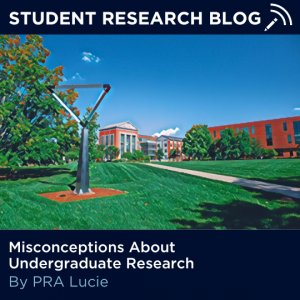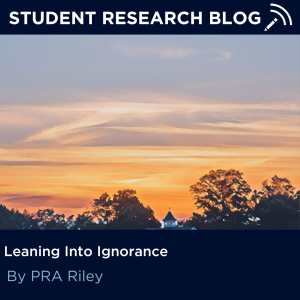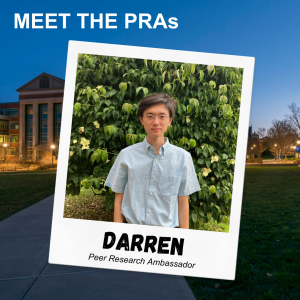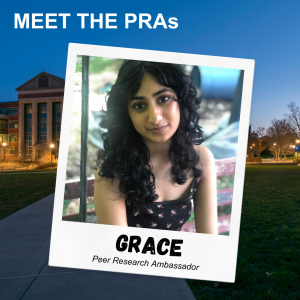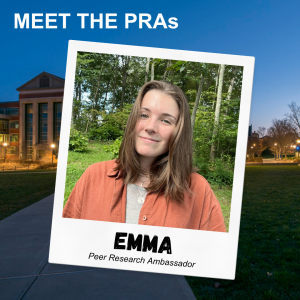 Meet Emma Beard ’24, an OUR Peer Research Ambassador (PRA) majoring in Molecular & Cell Biology and minoring in Physiology & Neurobiology.
Meet Emma Beard ’24, an OUR Peer Research Ambassador (PRA) majoring in Molecular & Cell Biology and minoring in Physiology & Neurobiology.
What is the focus of your research?
Broadly, my research focus is the Drosophila male germline. Previously, I looked at asymmetric stem cell division of male germline stem cells. During asymmetric stem cell division, newly synthesized histone H3 is inherited by the differentiating daughter cell, while preexisting H3 is inherited by the daughter stem cell. I worked on visualizing this asymmetric inheritance through live imaging of Drosophila testes, and also investigated the effects of perturbing asymmetric H3 inheritance. Currently, I am more focused on the later stages of Drosophila spermatogenesis. I am investigating the relationship between the expression of fertility factors on the Y chromosome and transposable elements in spermatocytes.
Why did you get involved in research?
I first became interested in research by hearing others talk about their research projects. I was really inspired by the passion people had for exploration in their field. I have also always loved lab classes, both in high school and college, so I thought the best way for me to get involved in research was in a lab. While I enjoy all aspects of research like reading papers and presenting my work, I will always be most fascinated by the techniques I get to use at the lab bench. Continue reading
